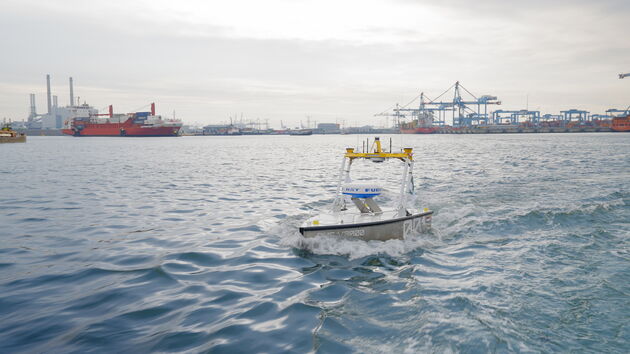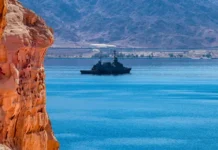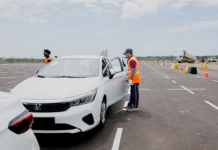
The Prinses Margriethaven on Maasvlakte 2 in Rotterdam served as the setting for a trial with an unmanned surface vessel last week.
For the first time, an unmanned vessel was permitted to navigate Dutch waters beyond a closed test environment.
The Inland Navigation Police Regulations normally require vessels to be crewed at all times. Since a law change in April 2025, obtaining an exemption under certain conditions has become possible.
Such a BPR exemption has never been granted in the Netherlands before.
This allowed the V3000 surface vessel from Demcon Unmanned Systems to sail autonomously in the Prinses Margriethaven under supervision of a traditional crewed surface vessel from the Port of Rotterdam Authority.
The use of an unmanned surface vessel offers the Port of Rotterdam Authority opportunities for even more efficient surveying in the future, for example, for depth measurements in larger areas such as Maasvlakte 2.
The trial occurred as part of the Port of Rotterdam Authority’s fleet renewal. Over the next 12 years, the Port of Rotterdam Authority’s vessels will reach the end of their technical service life.
The authority is therefore seizing this opportunity to renew its entire fleet, enhance sustainability, and standardize and simplify maintenance processes.
Harbour Master René de Vries explains that autonomous sailing has not yet been implemented on Dutch waterways but it is encouraging that they can now accommodate such initiatives with an exemption from the BPR.
Willem Snoek, Asset Manager at the Port of Rotterdam Authority, adds they examined the potential impact on conventional surface vessel crews and how we might deploy unmanned surface vessels in the future.
In the coming period, the Port of Rotterdam Authority and Demcon Unmanned Systems will analyze the knowledge gained during the trial using the V3000, a three-meter surface vessel.
Vessel automation and advanced safety systems ensure that the vessel can operate independently and safely.
Its compact size and maneuverability allow it to perform depth measurements and inspections in locations where traditional, crewed surface vessels cannot easily access.
Fedor Ester, managing director of Demcon Unmanned Systems, explains they are proud that our V3000 surface vessel was the first unmanned vessel to operate conventionally in this challenging port environment.





